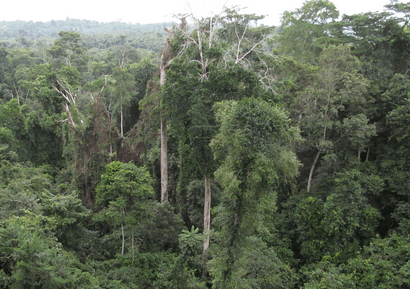Government moves to restore degraded forests
 Lands and Natural Resources Minister, Mr. John Peter Amewu, has hinted of plans to launch an aggressive reforestation programme to restore the nation’s degraded forests.
Lands and Natural Resources Minister, Mr. John Peter Amewu, has hinted of plans to launch an aggressive reforestation programme to restore the nation’s degraded forests.
He said come next year, the government would roll out a comprehensive policy to encourage plantation development.
The goal, he said, was not only bring back the forest cover but to promote plantation development as a profitable business venture to support job creation and enhanced incomes for the people.
Mr. Amewu said this in an address read for him at the opening of a day’s workshop on insect infestation in forest plantations at Fumesua in the Ejisu-Juaben Municipality.
It was organized by the Forestry Research Institute of Ghana (FORIG) in partnership with the Private Afforestation Developers Organization (PADO) and the Forestry Commission (FC) to highlight emerging pest and disease problems in tree plantations.
The workshop also provided the platform for tree growers to share experiences, discuss effective management of pest in plantations and the role of seed germplasm used for plantation establishment and silvicultural manipulations.
In attendance were research scientists, tree growers, private small-holder and commercial plantation developers.
Mr. Amewu indicated that banks and financial institutions would be brought in to give support to plantation developers.
The FC had already been mandated to establish an extension unit to provide technical and extension support to tree growers.
The Commission would additionally, set up an efficient fire unit to train and promptly respond to wild fires, which had over the years been devastating commercial plantations.
Mr. George Asamoah Amankwaa, President of PADO, identified forest fires, insect attacks, bad roads and the lack of financial support as some of the challenges facing private forest plantation development.
He therefore called for strong support by the government and the FC to help tackle these.
Dr. Mrs. Mary Apetorgbor, lead researcher on pest and diseases in forest plantations, said most private plantation developers had been losing between 20-50 per cent of trees to pest and insect diseases, especially in the transition ecological zones.
She noted that, having good understanding and grasp of the current situation, was a major step towards effective management of the pest and disease problems.
Dr. Daniel Aniagyei Ofori, Director of FORIG, gave the assurance that the Institute had the expertise and resources to provide the needed support for plantation development.
Source: GNA
